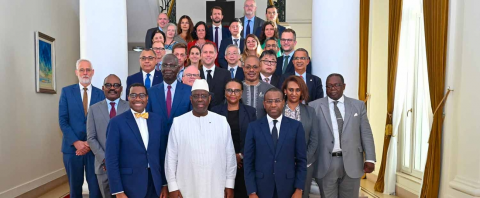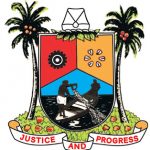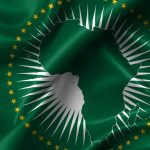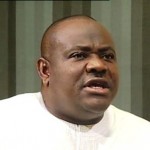Governments Must Create Jobs, Make African Economies More Competitive – Sall
African News, Latest Headlines, News Around Africa Sunday, September 18th, 2022
(AFRICAN EXAMINER) – President of Senegal and African Union (AU) chairperson, Macky Sall has harped on the need for governments in Africa to invest more in order to create jobs and make African economies more competitive.
President Sall made the observation while addressing a delegation from the African Development Fund (ADF) and senior management team of the African Development Bank Group, who paid a courtesy call on him at his office in Dakar.
The ADF is the African Development Bank Group’s concessional lending arm that supports the continent’s low-income countries. Representatives of fund’s regional and non-regional member countries were part of the delegation.
They were in Dakar for a two-day meeting to discuss the fund’s 16th replenishment. The replenishment discussions will conclude with a pledge event scheduled for November.
He also called for substantial support substantial support for Africa’s low-income countries and urged development partners of the ADF to allow the fund to tap capital markets for more resources to meet the critical development needs of member countries.
“These are tough times for governments. We need investment and development. Today, youth are raising their voices, demanding employment. They are impatient. Governments must listen and invest more to create jobs and make African economies more competitive. The ADF needs significant financing and should be allowed to go to the capital market”, he said.
The Senegalese leader also stressed that the African Development Bank (AfDB), a prescribed holder, is best placed to deploy the Special Drawing Right (SDRs) to the continent by the end of this year, adding that out of the $650 billion announced by the International Monetary Fund (IMF) in 2021, African countries were cumulatively allocated just $33 billion.
The AfDB president has emphasized that the bank can leverage the SDRs by three to four times to deliver more support to African countries. The bank’s AAA rating allows it to provide finance to African nations at interest rates that are far more attractive than what they can obtain on their own through commercial financing”, he stressed.
President of AfDB, Dr. Akinwumi Adesina, who led the delegation, thanked President Sall for his leadership of the AU, and for representing the continent at major international events to discuss Africa’s development.
Dr. Adesina spoke about the transformative impact of the ADF, which is marking 50 years since its inception.
Speaking earlier at the start of the third ADF-16 replenishment meeting, he said a significant addition of resources would help the fund address multiple challenges, notably, the devastating impacts of COVID-19, rising debt and economic vulnerability, a growing climate change disruption, and the threat of a food crisis triggered by Russia’s war in Ukraine.
“Climate change is decimating the ADF countries, triggering even high pressure for migration to Europe in dangerous waters”, he added.
He pointed out that nine of the ten countries most vulnerable to climate change are in sub-Saharan Africa, and all are ADF countries. He also projected that ADF countries would need $500 billion to adapt to climate change between now and 2030.
The bank chief said recent data showed that Africa receives only 3 percent of global climate financing, adding that if this trend continued, the continent’s climate financing gap would reach $100 billion to $127 billion annually through 2030.
“ADF will need a lot more resources, far beyond what donors can provide. So, we must ensure leverage to better resource ADF”, he further explained.
Dr. Adesina equally noted that if allowed to go to the capital markets, the fund could mobilize an additional $5.5 billion for each of its three-year replenishment cycles.
Described the fund a sound and unique institution delivering value for money, he further disclosed that it has connected 15.5 million people to electricity; supported 74 million people with improved agriculture; provided 50 million people with transport; built or rehabilitated 8,700 kilometers of roads; and provided 42 million people with upgraded water and sanitation facilities.
The ADF’s relevance is also reflected by the AfDB’s extreme agility in responding to hard-hitting crises, such as the launch of the $1.5 billion Africa Emergency Food Production Facility. This facility is helping to avert a looming food crisis in the wake of the war in Ukraine.
He noted that within 45 days of launching the facility, the bank’s board had in May approved $1.13 billion for operations in 24 countries.
“We expect to reach 35 countries at the end of this month, and many of them are African Development Fund countries. The facility targets the production of 38 million tons of food by easing access to fertilizers and climate-resilient seeds for 20 million African farmers”, he added.
The Centre for Global Development in May 2021 ranked the ADF the second-best among all 49 concessional financing institutions worldwide
In his remarks, Senegal’s Minister of Economy, Planning and Cooperation, Amadou Hott also underscored the ADF ’s critical role in helping countries address vulnerability.
Hott, who is also the governor of the AfDB for Senegal, stressed that a strong mobilization of concessional and mixed resources is more essential than ever to support African countries, support their recovery plans, and meet all the challenges they are facing.
Related Posts
Short URL: https://www.africanexaminer.com/?p=81036






















